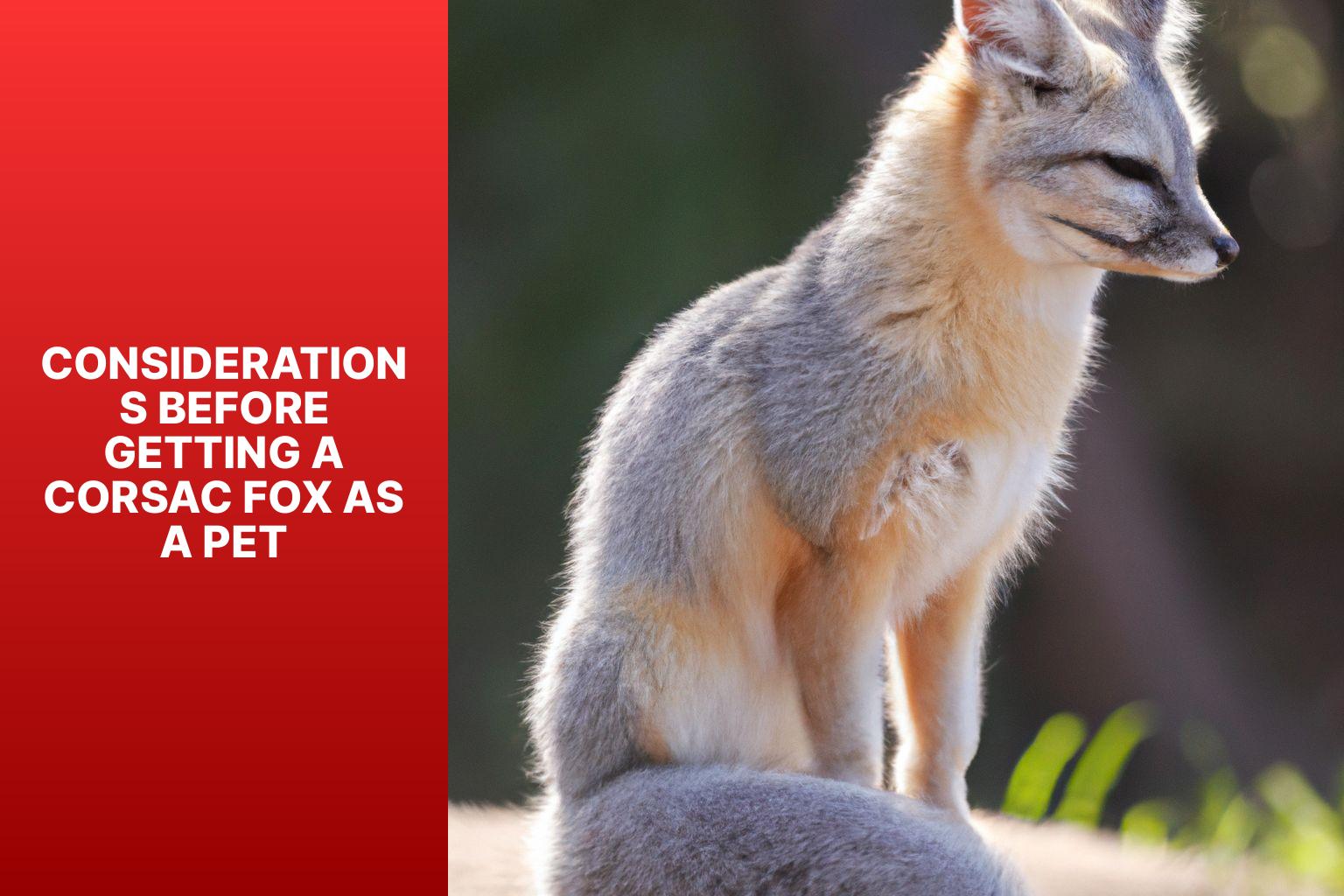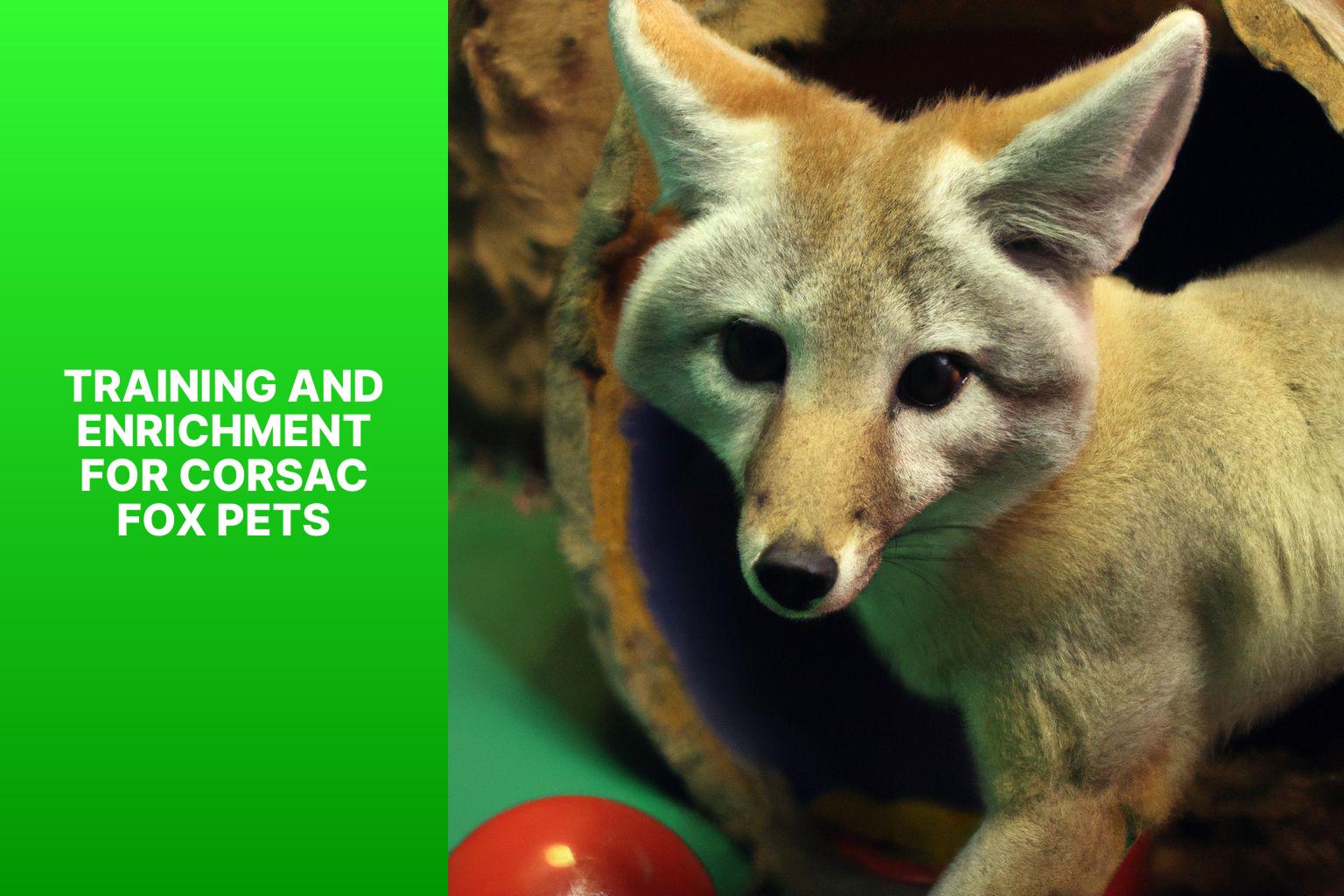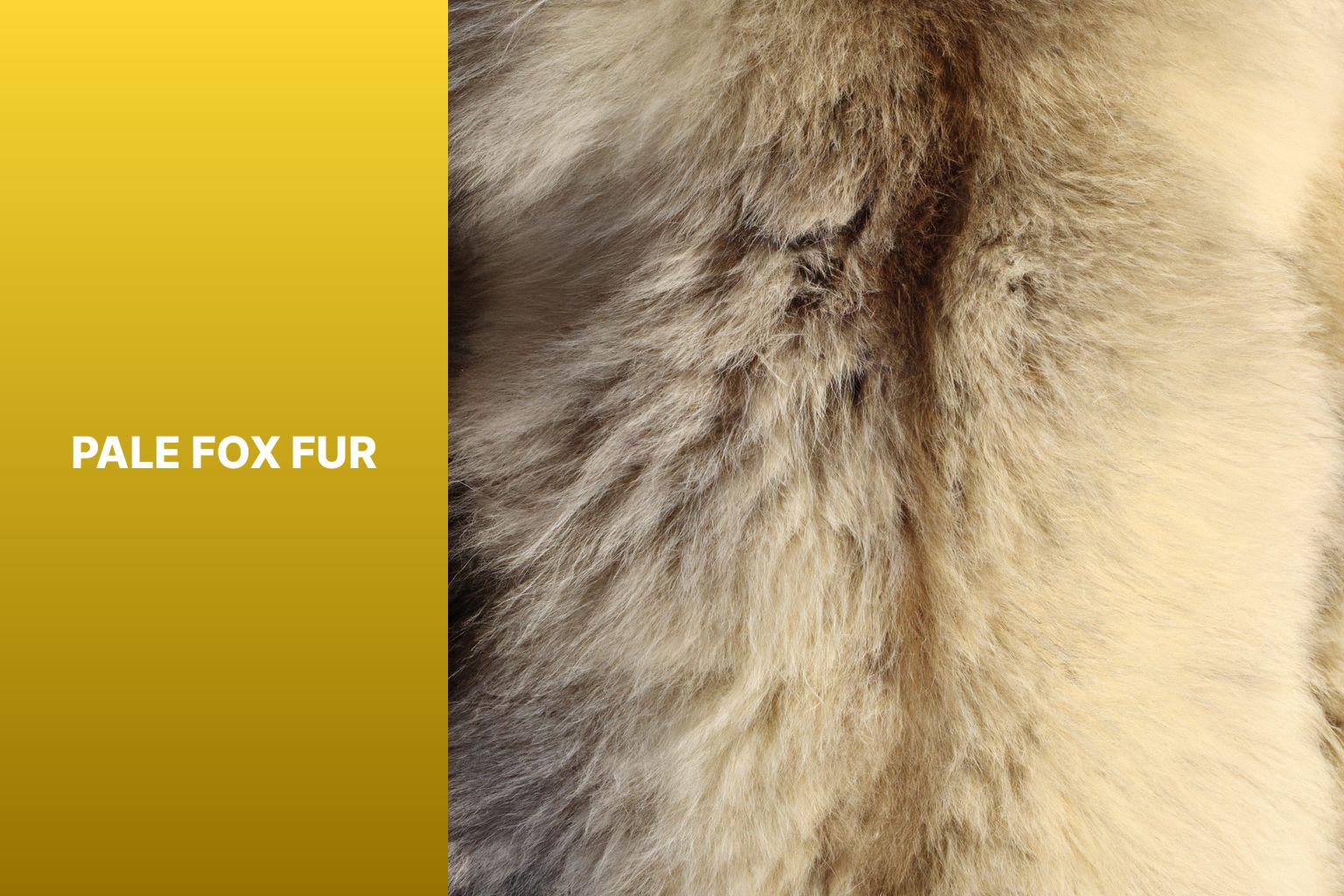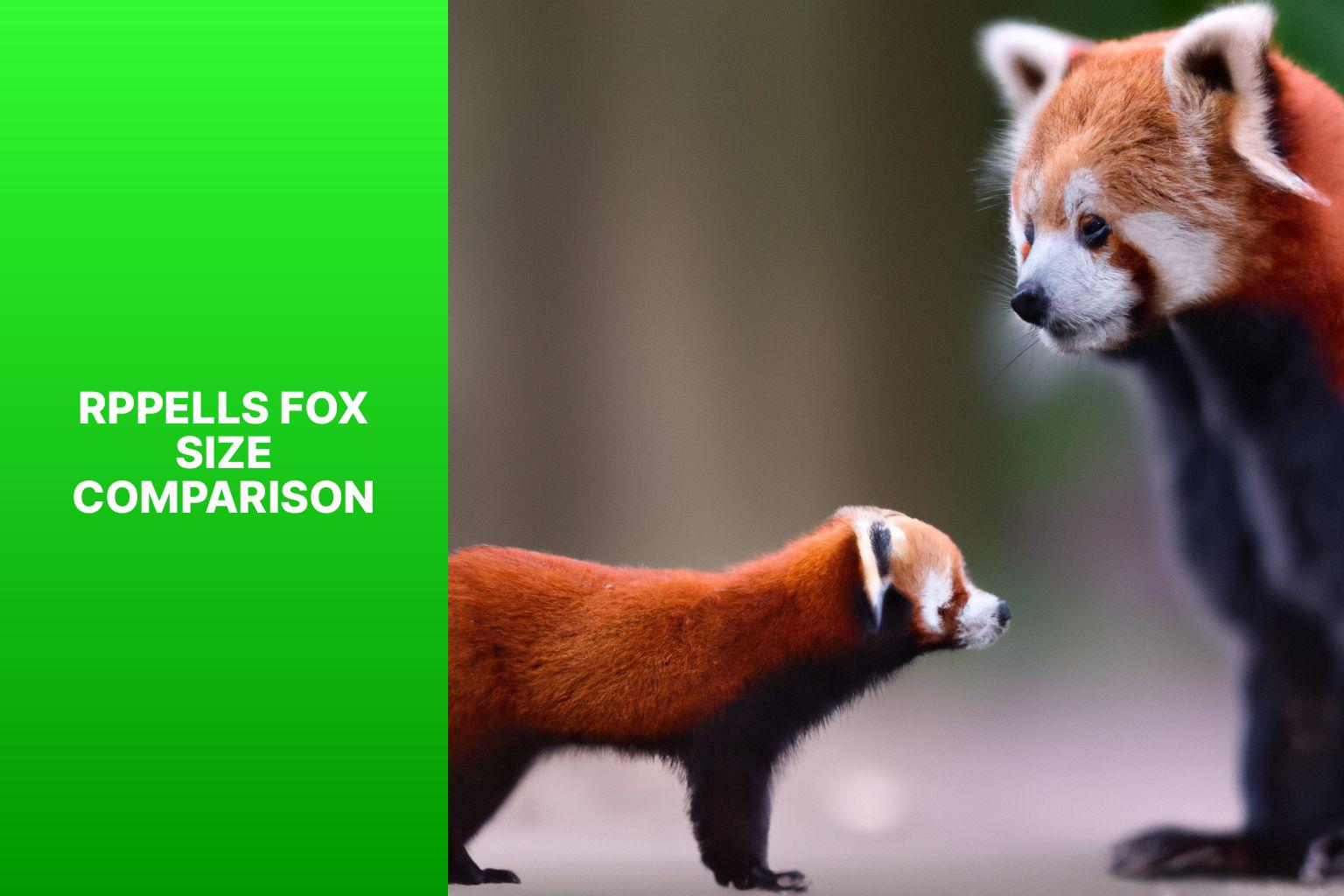The Corsac Fox, also known as the Steppe Fox, is a fascinating and exotic pet that has gained popularity in recent years. This article aims to provide an introduction to the Corsac Fox pet, highlighting its characteristics, legality, considerations before getting one, training and enrichment, healthcare, and ultimately help you determine if it is the right pet for you.
The Corsac Fox possesses unique physical attributes characterized by its small to medium size, bushy tail, and thick, dense fur. In terms of behavior and temperament, they are known to be independent, curious, and adaptable animals.
Before considering a Corsac Fox as a pet, it is necessary to understand the legal obligations and regulations surrounding owning one in your area. There are several important considerations to keep in mind, such as their habitat and space requirements, specific dietary needs, socialization and interaction requirements, and the legal obligations involved in owning this exotic pet.
Proper training and enrichment are crucial for the well-being of a Corsac Fox. Basic obedience training can help establish boundaries and ensure a harmonious living environment. Mental and physical stimulation through engaging activities and environmental enrichment is essential to prevent boredom and maintain their overall health.
The healthcare and maintenance of a Corsac Fox pet should be a priority. Regular veterinary care, including vaccinations, is necessary to ensure their overall health and prevent the spread of diseases. Grooming and coat care are also important to maintain their beautiful fur, and providing adequate exercise and activity is essential for their physical well-being.
Contents
- 1 Key takeaway:
- 2 Characteristics of the Corsac Fox
- 3 Is it Legal to Have a Corsac Fox as a Pet?
- 4 Considerations Before Getting a Corsac Fox as a Pet
- 5 Training and Enrichment for Corsac Fox Pets
- 6 Healthcare and Maintenance of Corsac Fox as a Pet
- 7 Frequently Asked Questions
- 7.1 1. What are the unique physical characteristics of the Corsac fox?
- 7.2 2. Are Corsac foxes suitable as pets?
- 7.3 3. Are Corsac foxes endangered due to the fur trade?
- 7.4 4. What adaptations do Corsac foxes have for survival in semi-desert areas?
- 7.5 5. Do Corsac foxes face threats from human disturbances?
- 7.6 6. How do Corsac foxes reproduce and care for their young?
Key takeaway:
- Corsac Fox pets require a specific habitat and space requirements: Consider the necessary space needed to accommodate the Corsac Fox’s natural behaviors and provide a suitable living environment.
- Proper diet and feeding are essential for Corsac Fox pets: Ensure you understand the specific nutritional needs of a Corsac Fox before considering it as a pet.
- Training and socialization are crucial for Corsac Fox pets: These foxes require proper socialization and basic obedience training to ensure their behavior is well-managed.
Characteristics of the Corsac Fox
The Corsac Fox, known for its unique characteristics, captivates with its physical appearance, behavior, and temperament. Discover the fascinating traits of this magnificent creature as we delve into its physical attributes and unravel the intriguing aspects of its behavior and temperament. Get ready to be amazed by the distinct features and captivating insights into the world of the Corsac Fox.
Physical Appearance
The physical appearance of the Corsac Fox is defined by its distinctive features. These small to medium-sized animals have a size difference between males and females, with males being generally larger. Measuring about 45-65 centimeters in length, excluding their bushy tail, Corsac Foxes possess a notable coat. This dense and fluffy coat serves as insulation in their natural habitat, with fur color varying from pale gray to reddish-gray depending on the season.
Another prominent physical characteristic of the Corsac Fox is its large, pointed ears. These ears not only aid in detecting sounds and prey but also assist in regulating the fox’s body temperature. The Corsac Fox’s long, bushy tail plays a crucial role in maintaining balance and providing warmth during colder months. With a length of up to 30 centimeters, the tail is an essential feature of their overall appearance.
The Corsac Fox exhibits a narrow face with a pointed snout and round, expressive eyes. Its black muzzle contrasts with a white underbelly, adding to its distinct features. These physical attributes enable the Corsac Fox to adapt seamlessly to its natural environment, allowing it to blend in with the arid landscapes it inhabits. Through their small size, camouflaging fur, and sharp senses, these foxes are well-suited for survival in their native areas.
Behavior and Temperament
Corsac Foxes have unique behavior and temperament characteristics that can greatly impact their suitability as pets. It is important to consider their behavior and temperament before deciding to have one.
One key attribute of Corsac Foxes is their curiosity. They are naturally curious creatures, always investigating their surroundings. This makes them highly entertaining and engaging pets.
Another important aspect of their temperament is their social nature. Corsac Foxes form strong bonds with their owners, displaying affectionate and playful behavior. They truly thrive on social interaction and companionship.
While they enjoy socializing, Corsac Foxes also value their independence. They require alone time for independent activities and to recharge their energy. It is important to respect their need for personal space.
Corsac Foxes are known for their alertness. They possess sharp senses, making them excellent watchdogs. They have the ability to alert you to potential threats, providing an added layer of security.
Corsac Foxes have high energy levels. Regular exercise and mental stimulation are essential for their well-being. Interactive play and puzzle toys are great ways to keep them physically and mentally stimulated.
To ensure the well-being and happiness of a Corsac Fox pet, it is crucial to provide a suitable environment that caters to their behavior and temperament. This should include socialization opportunities and plenty of mental and physical stimulation.
Is it Legal to Have a Corsac Fox as a Pet?
Is it legal to have a Corsac Fox as a pet? Corsac Foxes are regulated in many jurisdictions. In the United States, ownership varies by state. Check local laws to determine if it’s legal in your area.
Some states may require a permit or prohibit ownership. Adhere to regulations to avoid legal consequences and ensure the animal’s well-being.
Consider the ethical implications of keeping a wild animal as a pet. Corsac Foxes have specific needs and instincts that may be challenging in a domestic setting. Prioritize their well-being with a suitable environment, nutrition, and veterinary care.
Owning a Corsac Fox as a pet depends on your jurisdiction. Check local laws for compliance and the animal’s well-being. Consider the ethical implications and if you can meet their needs before deciding.
If interested in a unique and exotic pet, research other domesticated animals that make suitable companions. Cats, dogs, rabbits, or guinea pigs are often easier to care for. Always consider the animal’s welfare before deciding.
Considerations Before Getting a Corsac Fox as a Pet

Photo Credits: Foxauthority.Com by Jack Perez
Before welcoming a Corsac Fox into your home, it’s crucial to consider a few key aspects. From their habitat and space requirements to their diet and feeding preferences, it’s important to ensure you can provide the right environment for these beautiful creatures. Building a strong bond through socialization and interaction is another vital aspect, while understanding the legal obligations and regulations surrounding Corsac Fox ownership is essential. Let’s dive deeper into each of these factors to make an informed decision about whether a Corsac Fox is the right pet for you.
Habitat and Space Requirements
When keeping a Corsac Fox as a pet, it is crucial to provide them with a habitat that meets their habitat and space requirements. Here are some key points to consider:
– Enclosure Size: Corsac Foxes need a minimum enclosure size of 6 feet by 6 feet, but it is preferable to have larger enclosures to give them more space to roam.
– Indoor and Outdoor Space: It is ideal to have both indoor and outdoor areas for the Corsac Fox. Ensure that the outdoor enclosure is secure with a solid roof to prevent escape.
– Natural Environment: To mimic their natural habitat and provide mental and physical stimulation, incorporate grass, dirt, and branches in the enclosure.
– Enrichment: Enhance their well-being and prevent boredom by offering plenty of toys, hiding spots, and climbing structures. Remember to regularly rotate and add new enrichment items.
– Temperature and Ventilation: Proper temperature regulation is vital as Corsac Foxes are adapted to cold climates. Ensure that the enclosure is well-ventilated and provides shelter and insulation during extreme weather.
– Cleaning and Maintenance: To maintain a healthy environment, regularly clean the enclosure and replace bedding or substrate as needed.
– Noise and Disturbance: Keep the Corsac Fox’s enclosure in a quiet area away from loud noises and disturbances.
– Interaction and Socialization: Corsac Foxes are social animals and require regular interaction with their human caregivers. Spend quality time with them through play and training sessions.
By considering these habitat and space requirements, you can provide a suitable living environment that promotes the health and happiness of your Corsac Fox as a pet.
Diet and Feeding
When keeping a Corsac Fox as a pet, it is important to consider the following factors:
-
Dietary Needs:
Corsac Foxes have specific dietary needs, which include a balanced diet of animal protein and plant matter. It is crucial to provide them with a variety of food, such as small mammals, birds, insects, and reptiles, to ensure they receive all the necessary nutrients.
-
Feeding Schedule:
In order to meet the Corsac Fox’s natural feeding habits, it is recommended to establish a consistent and regular feeding schedule. These foxes are crepuscular animals and are most active at dawn and dusk. Thus, it is advisable to feed them during these times.
-
Portion Sizes:
To maintain the Corsac Fox’s overall health, it is essential to serve appropriate portion sizes based on their size and activity level. Overfeeding can lead to obesity and health issues, while underfeeding may result in malnutrition. It is advised to consult with a veterinarian to determine the right portion sizes for your pet.
-
Supplements:
In some cases, it may be necessary to provide supplements to ensure that the Corsac Fox receives all the required vitamins and minerals, such as calcium, vitamin D, and omega-3 fatty acids. Consulting with a veterinarian is key to determine if supplements are necessary for your fox’s diet.
-
Hydration:
Keeping your Corsac Fox well-hydrated is crucial for their overall health. Always provide fresh and clean water, ensuring it is easily accessible and regularly changed to maintain its freshness.
The overall health and well-being of a pet Corsac Fox greatly depend on a proper diet and feeding routine. To ensure the best care for your furry friend, it is recommended to consult with a veterinarian who specializes in exotic animals.
Socialization and Interaction
Socialization and interaction play a vital role in the well-being and happiness of a Corsac Fox pet. Corsac Foxes are naturally social animals and thrive when they have the opportunity to engage with their human caregivers and other animals. Here are some key points to consider for effective socialization and interaction:
1. Early socialization: It is important to expose your Corsac Fox to different people, animals, and environments from a young age. This helps them develop positive experiences and build confidence.
2. Bonding time: Make sure to spend quality time with your Corsac Fox, engaging in play and gentle interactions. This strengthens the bond between you and enhances their social skills. Regular interaction is crucial to prevent boredom and loneliness.
3. Positive reinforcement training: Utilize positive reinforcement techniques such as using treats and praise to train your Corsac Fox. This not only stimulates their minds but also fosters a positive environment for learning and growth.
4. Playtime and enrichment: Provide your Corsac Fox with both mental and physical stimulation. Incorporate interactive toys, puzzle feeders, and supervised play outside to satisfy their natural instincts and keep them active.
5. Monitoring interactions with other pets: When introducing your Corsac Fox to other pets, do so gradually and under supervision. Ensuring their safety and preventing aggressive behavior is essential.
It is important to remember that each Corsac Fox is unique and may have different socialization needs. By observing their body language and consulting a professional if necessary, you can better understand and meet their specific requirements. By cultivating a positive environment for socialization and interaction, you can strengthen the bond between you and your Corsac Fox.
Pro-tip: Approach the introduction of new experiences for your Corsac Fox slowly. Practicing patience and utilizing positive reinforcement will help build trust and confidence with your furry friend.
Legal Obligations and Regulations
Corsac Fox ownership inherently entails legal obligations and regulations that must be taken into account. Prior to acquiring a Corsac Fox as a pet, it is imperative to comprehend and adhere to these requirements.
1. Licensing: In some regions, possessing a Corsac Fox as a pet may necessitate obtaining a special permit or license. It is advisable to consult local authorities to ascertain the specific licensing regulations.
2. Health and Vaccinations: Similar to other pets, Corsac Foxes must receive regular veterinary care and vaccinations to ensure their well-being and prevent the spread of diseases.
3. Enclosure and Containment: Corsac Foxes necessitate a secure enclosure that caters to their specific spatial and habitat needs. The enclosure should be escape-proof and provide sufficient room for their natural behaviors.
4. Zoning and Housing Restrictions: Certain residential areas or housing communities may have zoning laws or restrictions pertaining to the ownership of exotic pets such as Corsac Foxes. It is important to familiarize oneself with the local regulations in order to comply accordingly.
5. Legal Importation: If acquiring a Corsac Fox from another country, it is crucial to comprehend the legal requirements for the importation of exotic animals. Conforming to both international and local regulations ensures a legal and ethical process.
6. Responsible Ownership: Owners bear the responsibility for the welfare and well-being of their Corsac Fox pets. This encompasses providing appropriate care, nutrition, socialization, and enrichment to fulfill their physical and mental needs.
Comprehending these legal obligations and regulations is vital for the responsible and lawful ownership of Corsac Foxes. Seeking guidance from local authorities and professionals is recommended to ensure compliance with all pertinent laws and regulations. Adhering to these requirements results in a rewarding and legal relationship with your Corsac Fox pet.
Training and Enrichment for Corsac Fox Pets

Photo Credits: Foxauthority.Com by Paul Moore
Training and enrichment play a crucial role in the well-being of Corsac Fox pets. From mastering basic obedience to providing mental and physical stimulation, this section dives into the practices that ensure a happy and thriving Fox companion. Unleash the potential of your furry friend as we explore the art of training and the importance of providing enriching experiences. Get ready to witness the transformation in your Fox’s behavior and overall happiness through these proven techniques.
Basic Obedience Training
Basic obedience training is essential for a Corsac Fox pet to ensure they are well-behaved and responsive. Here are a few steps you can follow:
– Start training early: Begin the training process when your Corsac Fox is young to take advantage of their optimal learning period.
– Utilize positive reinforcement: It’s important to reward your fox when they display desired behavior. This will help them associate obedience with positive outcomes.
– Teach basic commands: Start with simple commands such as “sit,” “stay,” and “come.” Use consistent verbal cues and physical prompts to reinforce learning.
– Maintain consistency: Keep a consistent routine and training environment to strengthen your fox’s understanding of obedience.
– Keep training sessions short: Corsac Foxes have shorter attention spans, so it is recommended to keep the sessions brief and engaging.
– Gradually increase difficulty: Once your fox has mastered the basic commands, you can introduce more advanced training, such as walking on a leash or performing tricks.
Remember, Corsac Foxes are intelligent but also have a strong instinct for independence. Therefore, it is important to be patient and understanding during the training process.
Fun fact: Corsac Foxes are highly adaptable and can be trained for various tasks, including participating in agility competitions alongside other dog breeds.
Mental and Physical Stimulation
Mental and physical stimulation is essential for the well-being of Corsac fox pets. To ensure their overall health and happiness, here are some natural ways to stimulate them:
– Interactive Toys: Engage your Corsac fox both mentally and physically by providing a variety of puzzle toys or treat-dispensing toys. These toys encourage problem-solving and physical activity.
– Environmental Enrichment: Enhance your Blanford’s Fox‘s habitat by providing hiding spots, tunnels, platforms for climbing, and various textures and scents. This creates a stimulating environment for them.
– Training Exercises: Foster a strong bond and stimulate their minds by engaging in training exercises with your Corsac fox. Use positive reinforcement techniques to teach them basic obedience commands.
– Outings and Excursions: Safely take your Blanford’s Fox for supervised outings in an outdoor area to provide physical exercise and mental stimulation. Always keep them on a leash and ensure a controlled environment.
– Daily Playtime: Set aside dedicated time each day for interactive play sessions with your Corsac fox. Play games like fetch or engage in chase and catch activities to release pent-up energy and keep them mentally and physically active.
Always prioritize the safety and well-being of your Corsac fox during these activities. Remember, regular mental and physical stimulation is crucial for their overall well-being.
Healthcare and Maintenance of Corsac Fox as a Pet
Taking care of a Corsac Fox as a pet involves various aspects to ensure their well-being. In this section, we’ll explore the healthcare and maintenance required for these adorable creatures. From veterinary care and vaccinations to grooming and coat care, as well as their exercise and activity requirements, we’ll uncover essential information to ensure the happiness and health of your Corsac Fox companion. So, let’s dive into the world of Corsac Fox care and discover how to provide them with the best possible life!
Veterinary Care and Vaccinations
When it comes to caring for your pet Corsac Fox, it is important to prioritize their veterinary care and vaccinations. Here are some key aspects to consider:
– Make sure to schedule regular check-ups with a veterinarian who is experienced in treating exotic animals like Corsac Foxes. These visits are essential for monitoring your fox’s health and catching any potential issues early on.
– Vaccinations are crucial for protecting Corsac Foxes against diseases. Your veterinarian will be able to recommend the appropriate shots based on your fox’s age, overall health, and the local risks in your area.
– Preventive care is also important and includes measures such as controlling parasites like fleas, ticks, and other external pests. Deworming medications are necessary to prevent internal parasites.
– It is always wise to have an emergency plan in place in case your Unique Blanford’s Fox falls ill or gets injured. Find a veterinarian who offers emergency services or have a list of nearby wildlife rehabilitation centers for assistance.
– Following the dietary recommendations provided by your veterinarian is crucial for your Exploring Blanford’s Fox Distribution: Habitat, Range, and Behavior overall health. They can guide you on the right diet, portion sizes, and any necessary supplements.
By investing in veterinary care and staying proactive with vaccinations and check-ups, you can ensure the well-being and longevity of your beloved pet Corsac Fox.
Grooming and Coat Care
Grooming and Coat Care
When caring for a Corsac Fox pet, follow these important steps:
- Brushing: Regularly brush the Corsac Fox’s coat to keep it clean and tangle-free. Use a soft-bristle or slicker brush to gently remove loose hair.
- Bathing: Occasional bathing with a mild, hypoallergenic shampoo designed for foxes helps keep the coat clean. Rinse thoroughly to remove all shampoo.
- Nail trimming: Trim the Corsac Fox’s nails regularly to prevent overgrowth and discomfort. Be careful not to cut too close to the quick, the sensitive part of the nail.
- Ear cleaning: Check the Corsac Fox’s ears regularly for dirt or wax buildup. Clean the outer part of the ear with a damp cotton ball or gentle ear cleaning solution, avoiding the ear canal.
Fact: Corsac Foxes have a thick double coat that provides insulation and protection in their natural habitat. Regular grooming and coat care promote the fox’s well-being and overall health.
Exercise and Activity Requirements
Corsac foxes have specific exercise and activity requirements for their overall well-being. These active animals need opportunities to explore and engage in natural behaviors. It is essential to provide supervised outdoor time in a secure enclosure where they can run, climb, and discover their surroundings. For this purpose, it is recommended to have a spacious enclosure equipped with climbing structures and hiding spots.
Engaging in interactive play sessions with Corsac foxes is crucial to provide both mental and physical stimulation. It is beneficial to use toys and activities that encourage their natural hunting and foraging behaviors. Incorporating regular exercise should include interactive puzzles, treat-dispensing toys, and games that engage their senses.
To ensure that Corsac foxes receive adequate exercise, aim for at least one hour of dedicated exercise and playtime with them per day. This can be divided into several shorter sessions throughout the day to keep them active and entertained. Variation is key in keeping Corsac foxes stimulated, so consider activities such as walks on a leash, supervised free-roaming time indoors, and agility training.
It is crucial to be cautious not to overexert Corsac foxes, especially in hot weather. During outdoor activities, provide plenty of fresh water and shade to prevent overheating. By incorporating these exercise and activity requirements into their daily routine, Corsac foxes can lead a physically and mentally satisfying life.
Frequently Asked Questions
1. What are the unique physical characteristics of the Corsac fox?
The Corsac fox has a medium-sized body with larger legs and ears compared to the red fox. It has a yellowish gray or brown to reddish gray fur and a long, bushy tail. It also has scent glands in the anal region, above the base of the tail, and on the paws and cheeks.
2. Are Corsac foxes suitable as pets?
No, Corsac foxes are not suitable as pets. They are wild animals with specific habitat and behavioral needs. Keeping them as pets is illegal in many countries and can be dangerous for both the fox and humans.
3. Are Corsac foxes endangered due to the fur trade?
While Corsac foxes are hunted for their fur, they are not currently classified as endangered. Populations can fluctuate significantly, and over-hunting for the fur trade has historically impacted their numbers.
4. What adaptations do Corsac foxes have for survival in semi-desert areas?
Corsac foxes have adaptations such as a keen sense of smell, acute eyesight, and broad ears to locate rustling sounds made by rodents. They also have a winter coat that becomes thicker and silkier to withstand dry weather conditions and can go without food and water for extended periods.
5. Do Corsac foxes face threats from human disturbances?
Corsac foxes generally try to avoid human disturbances and are not considered pests. Habitat loss due to agricultural purposes, landscape development, and overgrazing by livestock can pose threats to their population and survival.
6. How do Corsac foxes reproduce and care for their young?
Corsac foxes are monogamous and form pair bonds. Mating occurs between January and March, and the female creates a birthing den. The gestation period is 52 to 60 days, and a litter typically consists of 2-6 kits. Both parents assist in raising the young, and the kits start eating meat at around 4 weeks old.


